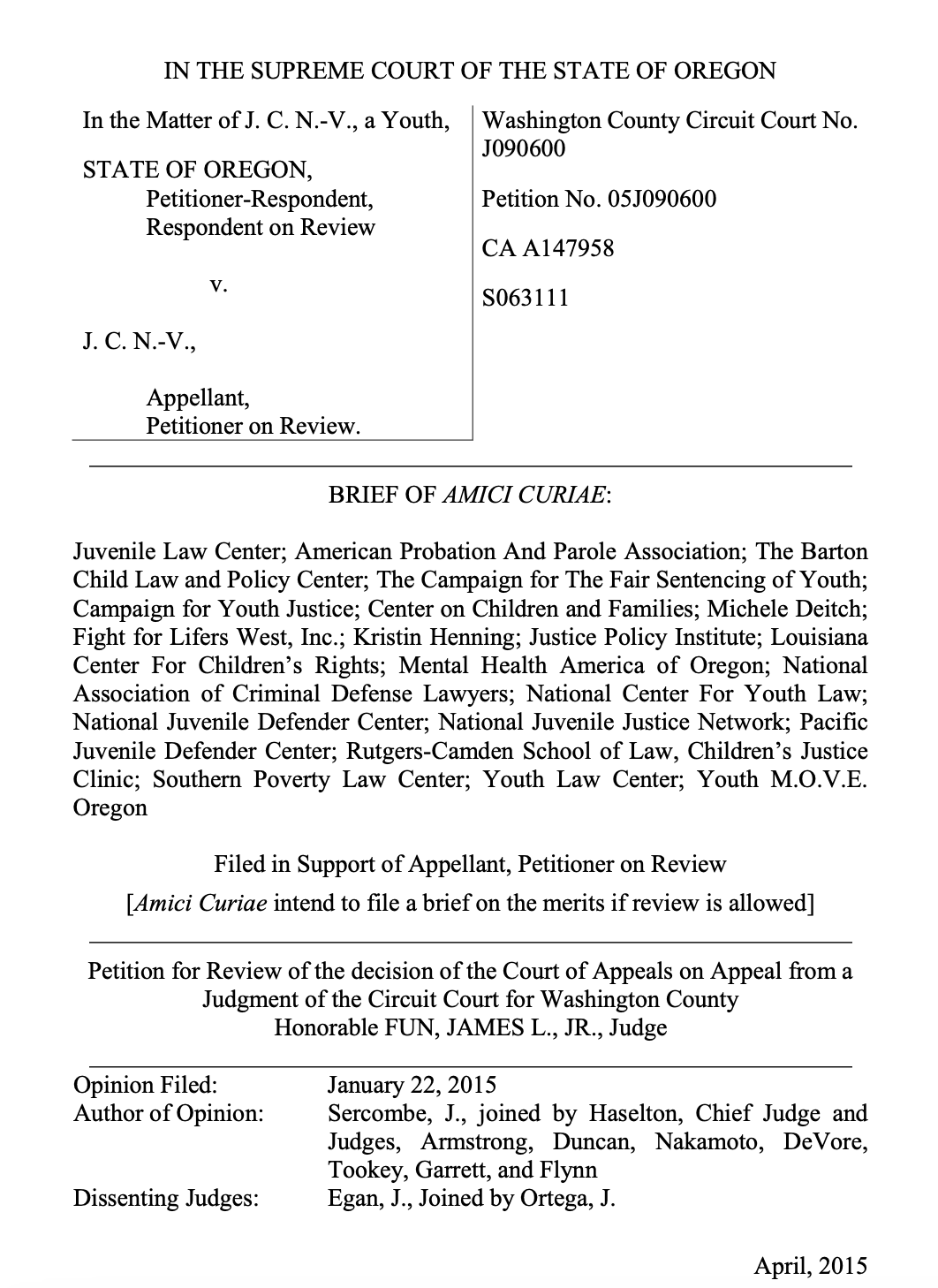
Summary of Argument
This case is one of national importance. Juvenile Law Center – a leading national organization for advocacy on behalf of youth in the juvenile and criminal justice systems – is joined as amicus curiae by a broad array of organizations and individuals that provide public policy analysis and support, legal scholarship, and advocacy in courts on important national issues of juvenile justice, all urging this Court to grant the petition for review.
The Court of Appeals decision, if left to stand unexamined on review, will have serious repercussions not just in Oregon but potentially beyond. Conversely, the petition for review, if granted, presents this Court with the opportunity to participate meaningfully in both the state and national development of the law and to address the fundamental differences between children and adults who commit crimes in the critical context of waiver of children into the adult criminal justice system. See Kent v. United States, 383 US 541, 546 (1966) (finding that transfer is a critically important action determining vital statutory rights of the juvenile).
The Oregon legislature sought to erect a high statutory bar to considering a child aged 12-14 (in grade school or middle school, here age 13) mature enough for trial in adult court. The Court of Appeals decision effectively eliminates that threshold by setting the statutory bar for “sufficient sophistication and maturity” so low that virtually all cases will cross it, even though the legislative history discloses that the legislature had exactly the opposite intent. In so doing, the
Court of Appeals used a plain-meaning construct and improperly ignored the body of developmental science that should have been applied in context to interpret the statutory ‘term of art’ at issue here. The court also inappropriately used the test for adult criminal insanity as statutory context to interpret the test for juvenile waiver. Finally, the court took no account of the profound constitutional concerns raised by its interpretation. Indeed, the ‘avoidance canon’ of statutory interpretation should have led the court to incorporate the developmental science into the statutory definition, rather than ignore it.